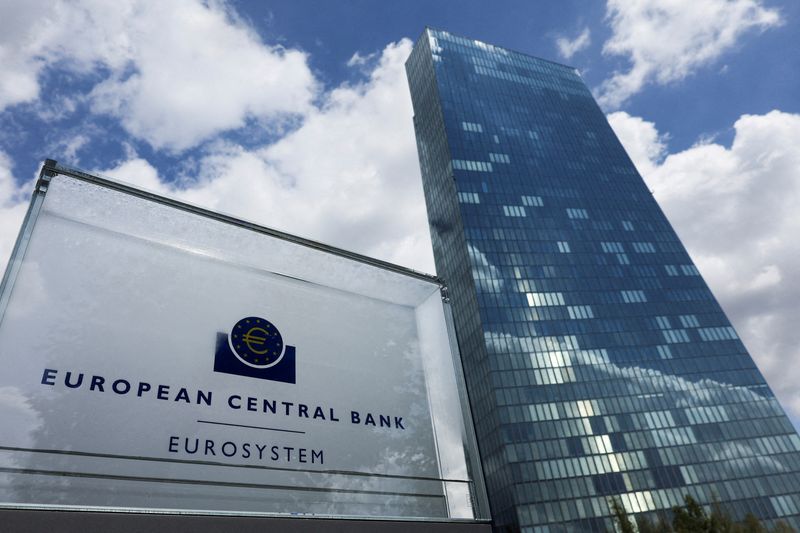By Alessandro Albano
Investing.com - A day after the Fed, the European Central Bank will announce on Thursday at 14:15 CET its decision on interest rates which, according to market consensus, will mean the fourth consecutive increase, to be followed by the release of new economic projections and details on the balance sheet reduction.
A new hike in the cost of the euro is discounted to curb inflation that hit an annual rate of 10% in October, but doubts are emerging about the pace that the bank will decide to follow as the region hovers between zero growth and an energy crisis.
Analysts at Rabobank, for example, are more inclined toward a 50 bp increase although they do not rule out a 75 bp hike, with further doubts about the future path of rates.
"A slower rate path does not mean a lower terminal rate," the analysts wrote in a note, and "conveying this message will be a key challenge for President Lagarde."
The Dutch bank confirms its view for a terminal rate of 3% but extends its expectations for monetary policy with a final 25 bp hike in April, while quantitative tightening could take place "at a monthly pace of €25-30bn, and we have penciled in a Q2 start date."
At Nordea Bank, however, they are more pessimistic about the aggressiveness of the ECB which, according to analysts, will raise rates by 0.75% for the third time in a row but will "postpone the decision on the starting date for reducing the huge bond holdings," setting it for "late Q2 or early Q3 2023."
Different again is the outlook coming from Morgan Stanley which, in a report, points out that a 50 bp hike tomorrow is more likely but to which should be added "more rate hikes at the upcoming meetings
in early 2023."
"We see the tapering of APP reinvestments starting in March 2023, signaled by a change in the forward guidance on asset purchases. After December, we see two more rate hikes of 25bp in February and March with a terminal rate of 2.5%," noted MS.
More negative are the forecasts for the European economy which, according to the U.S. investment bank, will face "strong headwinds, from soaring inflation to persistent tensions on energy supply and financial conditions tightening."
"[W]e expect the economy to start contracting in the fourth quarter, leading to an overall decline of euro area GDP by -0.2%Y in 2023," noted MS.
